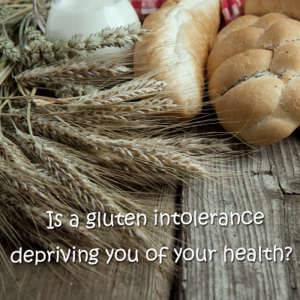Gluten Free
 For individuals who are sensitive to gluten and those who have celiac disease, following a gluten-free diet is the only feasible option. Those people whose diet includes a large component of foods such as bread and pasta may wonder if alternative foods will cause them to be deficient in either energy or nutrients.
For individuals who are sensitive to gluten and those who have celiac disease, following a gluten-free diet is the only feasible option. Those people whose diet includes a large component of foods such as bread and pasta may wonder if alternative foods will cause them to be deficient in either energy or nutrients.
What many people do not realize is that eliminating gluten can be a wise idea for anyone, regardless of whether or not they suffer from any kind of sensitivity. A gluten-free diet is not a fad diet but much more a healthy lifestyle diet.
Since many foods that contain gluten are simple carbohydrates, such as pasta, pizza crust, bread, muffins, cookies and cakes etc., most of us benefit from eating less of these foods.
Benefits of a Gluten-Free Diet
Gluten is a stretchy protein that is found in the majority of wheat products and baked goods. It is hidden as a thickening agent in almost every kind of processed soup, gravy, candy and sauce. Once you start a gluten-free diet, you may be amazed to see how many processed foods you will need to avoid. Continue reading
 “De-Glutenize” Your Kitchen
“De-Glutenize” Your Kitchen
When you decide to go gluten-free you have to prepare yourself for a bit of a learning curve. Don’t expect to figure it all out overnight. Allocate an appropriate amount of time to go through your cupboards and pantry. Check all condiment labels and salad dressings. Carefully inspect ingredient labels on prepackaged soups, rice and pasta dishes.
You will need to go through your freezer and refrigerator as well. Many frozen vegetable and meat mixtures have gluten in their sauces and gravies. This can seem like an overwhelming task. Break it down to one cupboard or fridge shelf at a time to keep it manageable.
Once you start reading labels, you will find that many of the faithful foods you have been buying on auto-pilot every trip to the grocery store no longer fit within your new diet parameters. If these foods are still unopened and “brand new,” consider making a donation to your local food bank. Have an empty box or Rubbermaid container handy at every “inspection” and pass on what you can no longer use. Continue reading






